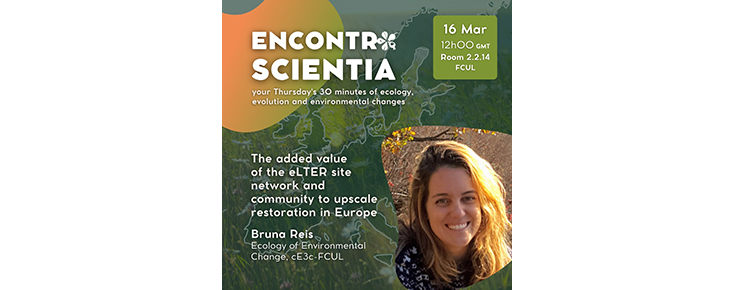
Por Bruna Reis (cE3c - Ecology of Environmental Change).
The long-term knowledge on ecosystems structure and functions gathered within LTER could be useful in scaling up ecosystem restoration to achieve global targets in the UN Decade on Ecosystem Restoration. In this research we aim to present the state of art of ecological restoration within the eLTER network and the relevance of long-term ecological knowledge to ecosystem restoration.
We have gathered information about experts and projects carried out at eLTER sites and the details of restoration projects through an online questionnaire. We identified 42 restoration projects from 18 countries in Europe. Most of the projects aimed to restore grasslands, forest & woodlands and freshwater ecosystems. A wide range of techniques to restore habitats was applied. Long-term monitoring was performed in 78% of the projects, and it was mostly based on vegetation indicators. Restoration success was rated higher in the long-term than in the short-term. A lack of standardization in the frequency, length and indicators used in the monitoring and evaluation was identified. Costs were not documented in 76% of the projects, and EU and private financing is still low. More than 75% of projects used infrastructure, expert knowledge, or data from eLTER sites. This overview revealed that ecological restoration takes time and requires long-term research and standardization. To tackle these issues, eLTER network offers services through its infrastructure, gathered long-term data sets, diversity of expertise and strategies that could help upscaling restoration in Europe. We also argue that extra finances from EU and private sector are needed to achieve larger-scale restoration.
Transmissão via Zoom (pw: 146271).













